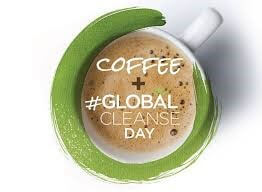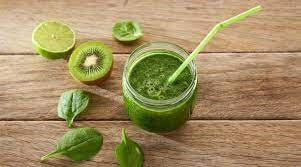A coffee cleanse is a detox diet involving consuming coffee as the primary beverage for a set period of time. The idea behind a coffee cleanse is that coffee’s caffeine and other compounds can stimulate the body’s natural detoxification processes, leading to improved digestion, weight loss, and increased energy levels.
People may choose to do a coffee cleanse for a variety of reasons. Some may be looking to kickstart a healthier lifestyle or lose weight, while others may seek relief from digestive issues or sluggishness. Some proponents of coffee cleansing also claim that it can help improve mental clarity and focus, although more research is needed to confirm these effects.
It’s important to note that while some people may find a coffee cleanse helpful, it may not suit everyone. People who are sensitive to caffeine, have a history of eating disorders or are pregnant or nursing should avoid a coffee cleanse. It’s always a good idea to talk to a healthcare provider before starting any new diet or cleanse to ensure it’s safe and appropriate for your needs.
Some Potential Benefits Of A Coffee Cleanse May Include The Following:
- Improved digestion: Coffee has been shown to stimulate the digestive system, which can help move food through the digestive tract more efficiently.
- Increased energy levels: The caffeine in coffee can provide a temporary boost of energy, helping people feel more alert and focused.
- Weight loss: A coffee cleanse may help people lose weight by reducing their calorie intake or increasing their metabolic rate.
- Improved mental clarity: Some people report feeling more focused and clear-headed while on a coffee cleanse, although this effect may vary from person to person.
However, there are also potential risks associated with a coffee cleanse, including:
- Dehydration: Coffee is a diuretic, meaning it can increase urine production and potentially lead to dehydration if not balanced with enough water intake.
- Nutrient deficiencies: Depending on the specific approach taken to a coffee cleanse, it may be difficult to get all the nutrients the body needs, leading to deficiencies over time.
- Caffeine withdrawal: If someone is used to consuming large amounts of caffeine, suddenly reducing their intake or going without it all together during a coffee cleanse could lead to withdrawal symptoms like headaches, irritability, and fatigue.
- Potential negative effects on sleep: Consuming caffeine later in the day can interfere with sleep quality, negatively impacting overall health and well-being.
How A Coffee Cleanse Works
Caffeine is a stimulant that affects the body in a number of ways. When consumed, caffeine is absorbed into the bloodstream and travels to the brain, which blocks the action of a neurotransmitter called adenosine. Adenosine promotes feelings of sleepiness and relaxation, so blocking its effects can make people feel more alert and awake.
In addition to its effects on the brain, caffeine can also impact other body parts. For example, caffeine has been shown to stimulate the release of adrenaline, a hormone that prepares the body for “fight or flight” responses. This can lead to increased heart rate, blood pressure, and respiratory rate.

Caffeine can also affect the digestive system, stimulating the production of stomach acid and increasing muscle contractions in the intestinal tract. This can improve digestion and bowel regularity, although too much caffeine can lead to diarrhea or other digestive issues.
Overall, the effects of caffeine on the body can vary depending on a person’s individual physiology, tolerance to caffeine, and the amount consumed. While small amounts of caffeine are considered safe, excessive consumption can lead to negative effects like jitters, anxiety, and insomnia.
The specific process of a coffee cleanse can vary depending on the approach taken, but some common methods include the following:
- Replacing meals with coffee: In this approach, someone may replace one or more meals daily with a cup of coffee, sometimes with added cream or other low-calorie ingredients. This can help reduce overall calorie intake and potentially lead to weight loss.
- Drinking only coffee for a set period: Some coffee cleanses involve drinking only coffee for a set period, ranging from a few days to a few weeks. During this time, participants may consume only black coffee or coffee with added low-calorie ingredients like cinnamon or stevia.
- Adding certain ingredients to coffee: Some coffee cleanses involve adding other ingredients to coffee, such as coconut oil or MCT oil, to enhance the potential health benefits of the cleanse.
It’s important to note that while some people may find a coffee cleanse helpful, it may not suit everyone. For example, people who are sensitive to caffeine or have underlying health conditions may not be able to tolerate a coffee cleanse. It’s always a good idea to talk to a healthcare provider before starting any new diet or cleanse to ensure that it’s safe and appropriate for your individual needs. Additionally, it’s important to maintain adequate hydration during a coffee cleanse and to ensure that nutrient needs are met through other food or supplementation sources.
Benefits Of A Coffee Cleanse
While more research is needed to understand the potential health benefits of a coffee cleanse fully, some of the reported benefits may include:
- Increased alertness and focus: As a stimulant, caffeine can help improve mental clarity and increase feelings of alertness and focus. This can be particularly helpful for people who need to stay alert for long periods of time, such as students or professionals.
- Weight loss: A coffee cleanse may help promote weight loss by reducing overall calorie intake, increasing metabolic rate, and potentially reducing appetite. In some studies, caffeine has been shown to increase fat oxidation and reduce fat absorption.
- Improved digestion: The caffeine in coffee can stimulate the digestive system, leading to improved digestion and bowel regularity. Some people also report feeling less bloated or gassy while on a coffee cleanse.
- Potential antioxidant benefits: Coffee contains various antioxidants and other compounds with potential health benefits. For example, in some studies, chlorogenic acid, a compound found in coffee, has anti-inflammatory and anti-cancer properties.
It’s important to note that the potential health benefits of a coffee cleanse may vary from person to person and may depend on factors like the individual’s caffeine tolerance and overall health status. Additionally, a coffee cleanse should not be seen as a replacement for a healthy diet and lifestyle but rather as a tool to potentially help support overall health and well-being.

While some studies have suggested the potential health benefits of coffee and caffeine consumption, more research is needed to understand the effects of a coffee cleanse fully. Here’s a brief overview of some of the available research on the potential benefits of coffee and caffeine:
- Increased alertness and focus: Numerous studies have shown that caffeine consumption can improve cognitive function, alertness, and attention, particularly in moderate doses (around 200-300 mg daily). However, individual responses to caffeine can vary, and excessive caffeine consumption can lead to jitters, anxiety, and other negative effects.
- Weight loss: Some studies have suggested that caffeine can help boost metabolic rate and increase fat oxidation, potentially leading to weight loss. However, the effects of caffeine on weight loss are modest and may be more pronounced in individuals who are overweight or obese.
- Improved digestion: Caffeine has been shown to stimulate the release of stomach acid and increase muscle contractions in the intestinal tract, which may help promote digestion and bowel regularity. However, excessive caffeine consumption can also lead to digestive issues like diarrhea or acid reflux.
- Potential antioxidant benefits: Coffee contains various compounds with potential antioxidant and anti-inflammatory effects, including chlorogenic acid and other polyphenols. However, more research is needed to fully understand the potential health benefits of these compounds and how they may interact with other dietary factors.
While some studies have suggested the potential benefits of coffee and caffeine consumption, more research is needed to fully understand a coffee cleanse’s effects and potential health benefits. Additionally, individual responses to caffeine can vary, and excessive caffeine consumption can negatively affect health. As with any dietary change, it’s important to consult a healthcare provider before starting a coffee cleanse or making any other significant changes to your diet.
Coffee Cleanse Risks And Considerations
While coffee cleanses may have potential health benefits, there are also some potential risks to be aware of. Here are some of the main risks associated with a coffee cleanse:
- Dehydration: Coffee is a diuretic, which means it can increase urine output and lead to dehydration if not consumed in moderation. It’s important to stay hydrated during a coffee cleanse by drinking plenty of water and other hydrating beverages.
- Nutrient deficiencies: Depending on the specifics of the coffee cleanse, it may not provide enough essential nutrients like protein, fiber, vitamins, and minerals. This can lead to nutrient deficiencies over time, negatively impacting overall health and well-being.
- Caffeine withdrawal: If someone is used to consuming caffeine regularly and suddenly cuts back or eliminates it during a coffee cleanse, they may experience caffeine withdrawal symptoms like headaches, fatigue, irritability, and difficulty concentrating.
- Adverse effects of excessive caffeine consumption: Excessive caffeine consumption can negatively affect health, including increased heart rate, high blood pressure, anxiety, insomnia, and digestive issues.
- Potential for disordered eating: Some people may use a coffee cleanse as a way to restrict calories or lose weight quickly, which can lead to disordered eating patterns or even eating disorders in some cases.
It’s important to weigh a coffee cleanse’s potential risks and benefits carefully and consult with a healthcare provider before starting any new dietary program. Additionally, it’s important to ensure that nutrient needs are being met through other sources of food or supplementation, and to avoid excessive caffeine consumption.

While a coffee cleanse may appeal to some people looking to boost their health or jumpstart weight loss, it’s important to recognize that it’s inappropriate for everyone. Here are some groups of people who should avoid a coffee cleanse or speak with a healthcare provider before trying it:
- Pregnant or breastfeeding women: Caffeine can cross the placenta and affect fetal development, and it can also pass into breast milk and affect nursing infants. As such, pregnant or breastfeeding women are typically advised to limit their caffeine intake or avoid it altogether.
- People with certain medical conditions: Individuals with certain medical conditions, such as high blood pressure, heart arrhythmias, anxiety disorders, or gastrointestinal disorders, may be particularly sensitive to caffeine and should avoid or limit their intake. Additionally, some medications can interact with caffeine and lead to negative side effects.
- Individuals with a history of disordered eating: As mentioned earlier, some people may use a coffee cleanse as a way to restrict calories or lose weight quickly, which can be a warning sign of disordered eating. Individuals with a history of disordered eating should avoid any dietary program that may trigger or worsen disordered eating behaviors.
- Children and adolescents: Children and adolescents are generally advised to avoid or limit their caffeine intake due to concerns about its effects on growth and development.
- Individuals who are highly sensitive to caffeine: Some individuals may be more sensitive to the effects of caffeine than others and may experience negative side effects like jitters, anxiety, or insomnia, even at low doses. These individuals may want to avoid or limit their caffeine intake.
If you are considering a coffee cleanse, speaking with a healthcare provider is important to determine whether it’s appropriate for your individual needs and circumstances. Your healthcare provider can help you weigh the potential risks and benefits and develop a safe and effective plan for you.
How To Do A Coffee Cleanse
Here is a step-by-step guide to planning and implementing a coffee cleanse:
- Set a realistic goal: Determine your goals for the coffee cleanse. Are you looking to lose weight, improve digestion, or simply reset your caffeine tolerance? Be sure to set realistic goals and expectations for the cleanse.
- Choose a duration: Decide how long you want to do the coffee cleanse. It’s recommended to keep it short, typically no more than a week, and to speak with a healthcare provider before starting.
- Plan your coffee intake: Determine how much coffee you will consume daily during the cleanse. Limiting coffee consumption to 2-3 cups per day and avoiding adding sugar or cream is recommended.
- Ensure nutrient balance: It’s important to ensure you still get essential nutrients during the coffee cleanse. Plan meals with nutrient-dense foods like fruits, vegetables, whole grains, and lean proteins. Consider adding supplements like a multivitamin or protein powder to ensure adequate nutrient intake.
- Stay hydrated: Coffee is a diuretic and can lead to dehydration if not consumed in moderation. Be sure to drink plenty of water and other hydrating beverages throughout the day. Aim for at least 8 glasses of water per day.
- Monitor caffeine intake: Keep track of your caffeine intake to avoid overconsumption. Be mindful of other sources of caffeine, like tea, soda, and chocolate.
- Listen to your body: Pay attention to how your body responds to the coffee cleanse. If you feel excessively fatigued, irritable, or experiencing negative side effects like headaches or digestive issues, it may be time to reconsider the cleanse or adjust your plan.
- Ease back into your regular diet: After the coffee cleanse is complete, ease back into your regular diet gradually. It’s recommended to start with light, nutrient-dense meals and avoid heavy, processed foods or large portions.
Here are some additional tips for staying hydrated and maintaining nutrient balance during the coffee cleanse:
- Drink plenty of water and herbal tea throughout the day.
- Incorporate hydrating foods like cucumbers, watermelon, and celery into your meals.
- Choose nutrient-dense foods like leafy greens, berries, and lean proteins.
- Add protein powder or superfood supplements to your coffee or smoothies to ensure adequate nutrient intake.
- Avoid processed foods, sugary snacks, and alcohol during the cleanse.
It’s important to note that the coffee cleanse may not be suitable for everyone and that modifications may be necessary based on individual needs or preferences. Here are some potential variations or modifications to consider:
- Decaffeinated coffee: If you are sensitive to caffeine or prefer not to consume it, you can still do a coffee cleanse using decaffeinated coffee.
- Adding healthy fats: Adding healthy fats like coconut oil or ghee to your coffee can help improve satiety and provide additional nutrients. However, be mindful of portion sizes and calorie intake.
- Adjusting the duration: As mentioned earlier, the duration of the coffee cleanse should be kept short, typically no more than a week. However, you may choose to do a shorter or longer cleanse based on your individual needs and preferences. Speaking with a healthcare provider before making any significant changes to your diet or lifestyle is important.
- Incorporating other foods or beverages: You may choose to incorporate other nutrient-dense foods or beverages into your coffee cleanse, such as smoothies, fresh juices, or herbal teas. However, be mindful of added sugars or excess calorie intake.
- Combining with other dietary plans: If you follow a specific diet plan, such as vegan or paleo, you may modify the coffee cleanse to align with those guidelines. Be sure to speak with a healthcare provider or registered dietitian for guidance.
It’s important to remember that the coffee cleanse is not a one-size-fits-all approach and that modifications may be necessary based on individual needs and preferences. Always listen to your body and speak with a healthcare provider or registered dietitian before making any significant changes to your diet or lifestyle.
Coffee Cleanse Conclusion
To recap, here are the key takeaways and benefits/risks of a coffee cleanse:
Key takeaways:
- A coffee cleanse involves limiting or eliminating other foods and beverages and consuming coffee in moderation for a set period of time.
- It’s important to speak with a healthcare provider before starting a coffee cleanse, and to monitor your caffeine intake and nutrient balance throughout the process.
- Modifications or variations may be necessary based on individual needs or preferences.
Benefits:
- A coffee cleanse may improve alertness, weight loss, and digestion.
- It may also help reset caffeine tolerance and reduce dependence on sugary or processed foods.
Risks:
- Risks of a coffee cleanse may include dehydration, nutrient deficiencies, and caffeine withdrawal symptoms.
- It may not be suitable for everyone, especially those with underlying medical conditions or sensitivities to caffeine.
Overall, a coffee cleanse may be a useful tool for some individuals looking to reset their caffeine tolerance or jumpstart healthy habits. However, it’s important to approach it with caution and speak with a healthcare provider or registered dietitian before starting.
It’s important to approach a coffee cleanse with caution and seek professional guidance if needed. While a coffee cleanse may offer some potential benefits, it can also carry risks, especially if not done properly. Speaking with a healthcare provider or registered dietitian before starting a coffee cleanse is crucial, especially if you have any underlying medical conditions or concerns about nutrient balance or caffeine intake.
Professional guidance can help ensure you approach the coffee cleanse safely and effectively. A healthcare provider or registered dietitian can also provide you with personalized recommendations and modifications based on your individual needs and preferences. Remember, a balanced diet and regular exercise is the most effective and sustainable way to achieve and maintain good health. A coffee cleanse may offer a temporary boost, but it’s not a long-term solution. So, take the time to do your research, approach it safely, and listen to your body throughout the process.
If you have any questions about a coffee cleanse or want to share your experiences, we encourage you to use the comments section below. Our community is full of supportive individuals who are here to help and provide insight.
Please remember to be respectful and mindful of others when sharing your experiences or asking questions. While a coffee cleanse may work for some individuals, it may not be the best option for everyone. So, feel free to share your thoughts and experiences and be open to different perspectives and viewpoints. We are all on our own health journeys, and by supporting each other, we can achieve our goals and live healthier, happier lives.
In a family of coffee addicts, Mark started to appreciate the drink fairly late – around 35 years old.
His love for java began when he wrote articles on it and bought his first machine after which everything else just fell into place; there are now five machines in our home!
We start every day with an early morning cuppa coffee because what could better help set your mind right than some freshly brewed hot Coffee?
When Marks not writing or thinking about coffee, he can be found sipping on a cup of black gold at one of his favorite local joints.




